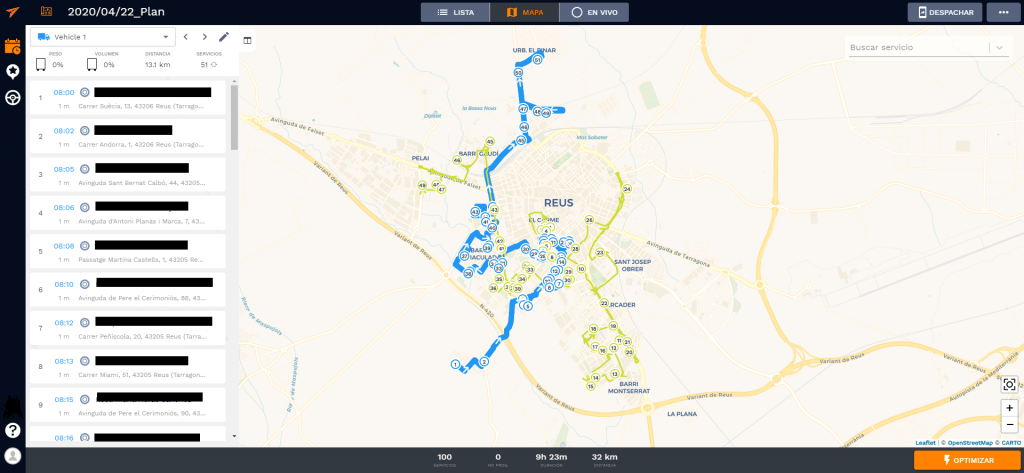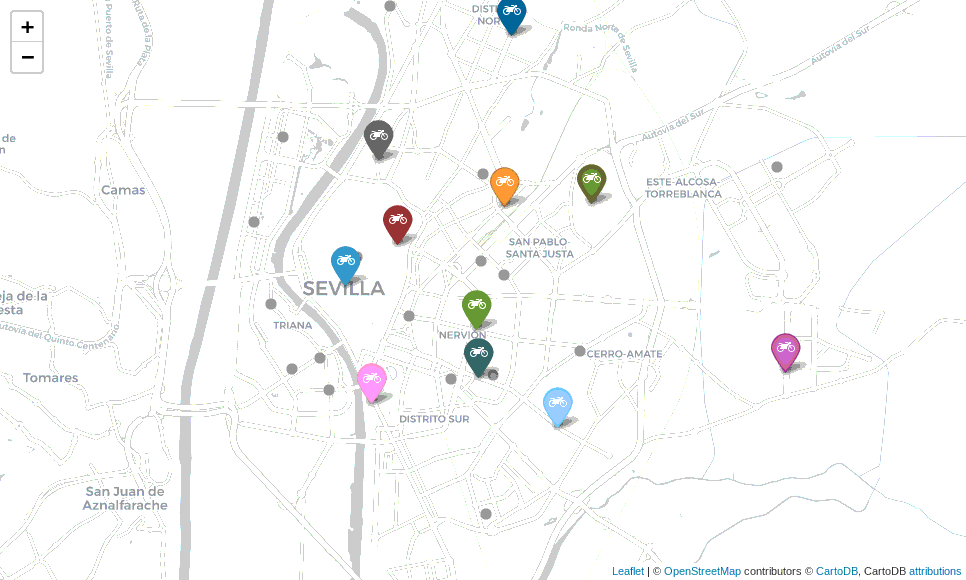Recycling

GManage recycling when no one has access to the recycling bins

The coronavirus crisis has had major repercussions on a global scale. From the economic shock resulting from a major financial crisis to social disruption and citizen unrest in this “new normal”. However, there are consequences of the pandemic that have not enjoyed the same media repercussion despite sharing their degree of importance, as is the case of sustainability and recycling.
An adverse effect throughout this prolonged pandemic year has been the strong demand for single-use products (mostly plastic), such as gloves, masks or protective screens, among others. The increase in this type of waste has skyrocketed and even today they pose a difficult problem of environmental unsustainability.
The decomposition of such waste in a sustainable manner has become an arduous task, since energy expenditure is high in addition to producing high polluting emissions in the incineration process. This, added to the already prevalent problem of “climate unsustainability”, could easily have led us to think of a real environmental disaster on a global scale. However, according to sources such as Eldiario.es, state that an adverse effect of the pandemic has been increased environmental awareness and an increase in domestic recycling.
According to this medium, more quantity is currently being recycled compared to previous “pre-pandemic” years, in addition to other types of hitherto invisible waste, such as those mentioned above, are also recycled. In this way, everything suggests that commitment to the environment, despite suffering such a dramatic situation as COVID-19, has occurred in an increasingly firm custom in homes, thus becoming a practice of irrepressible promotion.

And why the other heroes of the pandemic? Because despite the exponential growth in terms of environmental awareness, dealing with the pandemic situation has not been easy for recycling companies. There have been exceptional situations, as has occurred in some homes and surroundings in Chile, where it has not been possible to have suitable points to be able to recycle properly (the appropriate recycling containers were not available), which made it difficult to carry out this practice. This, together with the inconvenience of the strictest home confinement stages, posed a great challenge. Taking into account this problem, companies such as Chile Rembre have been able to find a solution. Thanks to your proposal S.O.S. Rembre, managed to overcome the obstacles of the pandemic by facilitating the practice of recycling thanks to their home waste collection service. The sole responsibility of the users who participated in this initiative was, solely, to collect all those containers or waste that could be recycled, such as cardboard, plastics, metals and glass.

Given the significant growth in operations, as each family had to visit practically door-to-door, Rembre was forced to look for a tool that would help them plan their waste collection routes more efficiently. Smartmonkey.io Planner it has allowed them to efficiently, quickly and safely manage all routes, reducing routes, fuel consumption and emissions by more than 30%, helping to have even more efficient and environmentally friendly operations. Without a doubt, a solidarity project committed to the environment that has made this crisis a more livable world.

This health crisis has shown us the importance of being able to count on a more sustainable world that must be preserved. Therefore, simple gestures such as the practice of recycling or improving the efficiency of last-mile operations can represent the necessary change towards a better planet.
We encourage you to recycle a little more and to improve the efficiency of your last mile operations in a simple way and completely free of charge with Routal Planner.

Sant Jordi is always a special day, books, roses, queues and people, lots of people. Everyone is out on the street, enjoying a magical day for both children and adults. It is the day of the year when the most books are sold, 7.5% of annual sales In the city of Barcelona.

This year will be special. We'll have to spend it at home, enjoying a good read, our recommendation for these days The Black Swan by Nassim Taleb. This year we will save ourselves the hassle of Las Ramblas and we will have to buy the roses online. Without a doubt, a special year.
We want to take advantage of this important date to see the success of initiatives that, in a normal year, would hardly have achieved such overwhelming success.
One of our customers Santjordiacasa.com is using Highway as a tool to optimize the distribution of roses on such a special date as Sant Jordi.

Thanks to the power of the Highway route planner, they have been able to grow in deliveries and reach customers that would have been impossible for them before.
Like them, hundreds of other customers are entering a world such as home delivery. A channel that had often been completely forgotten. Thanks, or unfortunately, COVID-19 has forced the launch of new marketing channels such as Ecommerce and its own distribution and home delivery.
We are seeing this in our traditional customers, distribution companies to the HORECA channel that are converting to home distributors overnight.
Pastry shops such as Cropics they were able to deliver all the Easter monkeys in record time and have the detail of leaving a monkey at my wife's grandmother's house 😁. These types of details make being able to help small businesses make you proud of the work you do and of seeing how you can help more people around you.

We are in a very difficult time for many companies and families. There is little help to get through this crisis and reaching those people we can help is always a challenge. I encourage you to share our story, the story of our users and customers, companies that are embarking on a new adventure, delivery. Without experience, without processes, but with a desire to fight and face the corona, you are not alone.
We won this together.

The distribution on demand is an industry that is growing at a very high speed. New companies appear every day, especially in the market for food, beverages and deliveries of perishable products. And the competition is wild. Efficiency is a key metric in the “I want it all and I want it now” era and the most critical part is what happens from when a new order is placed until it is delivered.
Today I want to focus on the problem of sending new orders, that is, how to decide which courier service the order should be assigned to when an order enters the system. This is because the dispatch today is not addressed systematically. Optimizing the dispatch system can minimize delivery time and improve customer satisfaction.
The operating paradigm of companies that deliver on demand can be divided into two different types:
- Operations based on a single warehouse are those operations focused on a single tank. This warehouse has several dealers and the programming is done once to obtain an order list; usually grouping orders by area. Amazon Prime is a good example of this paradigm.
- Operations based on multiple warehouses are those operations that rely on choosing the order in one of the multiple warehouses and delivering it to a customer. In this case, the delivery people are scattered around the city, and once a new order arrives, it is assigned through a shipping process to one of the multiple delivery people. Companies such as Uber, Just Eat, Delivero, etc. operate this way.
The problem of dispatching is solved more or less satisfactorily in the first scenario thanks to the possibility of linking together a list of deliveries and considering it as a Traveling Seller Problem (Traveling Salesman Problem) with some pre-clustering restrictions (OK, I know that TSP is an expensive problem, but... come on, it's about Amazon).
On the contrary, in the second scenario, it is not so clear that the problem is being optimally addressed. How can a new incoming order be added to a running scenario? There are tons of variables to consider:
- Can the courier make multiple collections before starting to deliver?
- Can an already assigned order be reassigned to another courier service?
- Do all orders have the same priority? (for example, all orders must be delivered no later than 30 minutes after placing them)
Do orders need to be delivered by a particular vehicle? - ...

Modeling this scenario can be quite challenging, and that's why SmartMonkey has been working on this problem for a while. We call our solution Online Programming Optimization Model (OSOM) (Yes, branding isn't one of our strengths 😅, but phonetically it sounds like “incredible” and that's pretty fun). OSOM can model business restrictions and find a feasible solution to the dispatching problem.
In the simulation below, we have modeled a world where:
- A courier service can be assigned multiple pickups and deliveries at the same time
- and the first next service of each messaging service is fixed and cannot be reassigned in subsequent iterations.
The visualization contains twenty iterations of the world divided into two steps:
1. New incoming services are marked in gray.
2. Services are dynamically assigned to deliverers to optimize overall delivery time.






.png)


